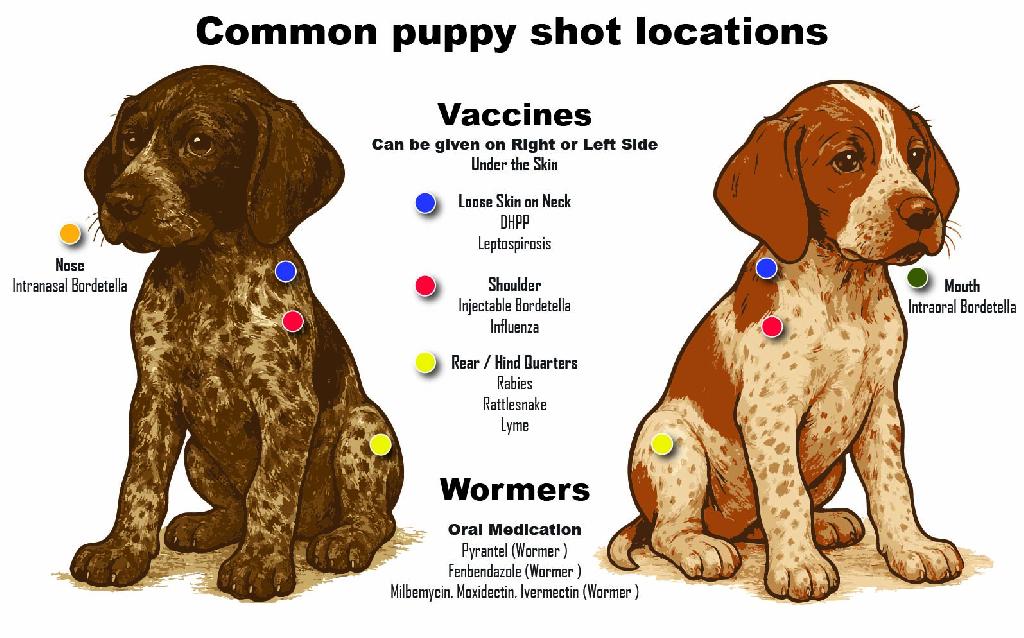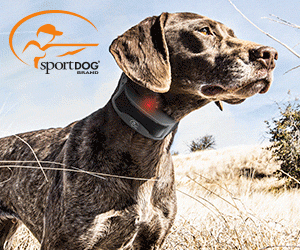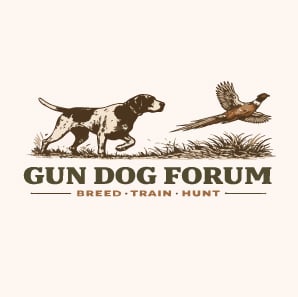Puppy Shot Calendar
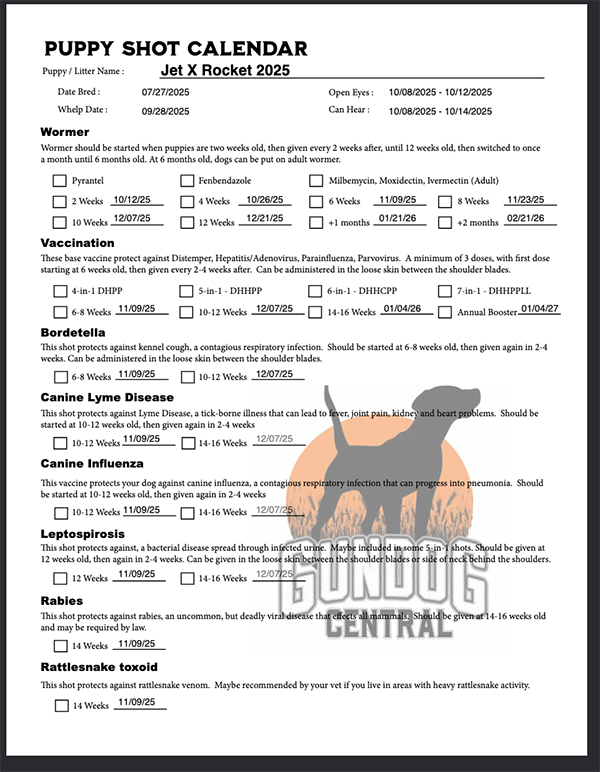
Use this page to automatically generate a puppy shot record sheet with the dates for each vaccine pre-determined. Enter your puppies whelp date below and click 'generate' to create a sheet with your puppies shot schedule mapped out. If you're a breeder, this will generate a nice shot record that you can give your customers. You'll also find information below about the details all your puppies core vaccines and optional shots. You'll also see common locations where vaccines are given and a frequently asked question section located at the bottom of the page.
When it comes to keeping your puppy healthy, vaccinations play one of the most important roles in preventing serious and sometimes fatal diseases. Core vaccines are those that every puppy should receive, regardless of breed, size, or lifestyle. These vaccines protect against highly contagious diseases that are found worldwide and can easily spread between dogs—or even from dogs to humans. By following a proper vaccination schedule, you help build your puppy’s immune defenses during their most vulnerable early months.
The first core vaccine most puppies receive is the DHPP combination shot. This stands for Distemper, Hepatitis, Parvovirus, and Parainfluenza. Each of these viruses can cause severe illness: distemper attacks the nervous system and lungs, hepatitis damages the liver, parvovirus causes deadly intestinal infections, and parainfluenza contributes to respiratory disease. Puppies typically begin the DHPP series around six to eight weeks of age, with boosters given every three to four weeks until they are about sixteen weeks old. After that, a booster is given at one year, and then every three years to maintain protection.
Another essential vaccine is rabies, a disease that’s almost always fatal once symptoms appear and can be transmitted to humans. Because of the serious risk rabies poses to both pets and people, this vaccine is required by law in nearly every state. Puppies usually receive their first rabies shot at twelve to sixteen weeks old, followed by a booster one year later. Depending on the vaccine type and local regulations, additional boosters are then given every one to three years.
Keeping up with your puppy’s core vaccines not only protects them, but also helps safeguard other animals and your community from preventable outbreaks. Your veterinarian can tailor a vaccination schedule based on your puppy’s age and health status to ensure they stay protected as they grow.<
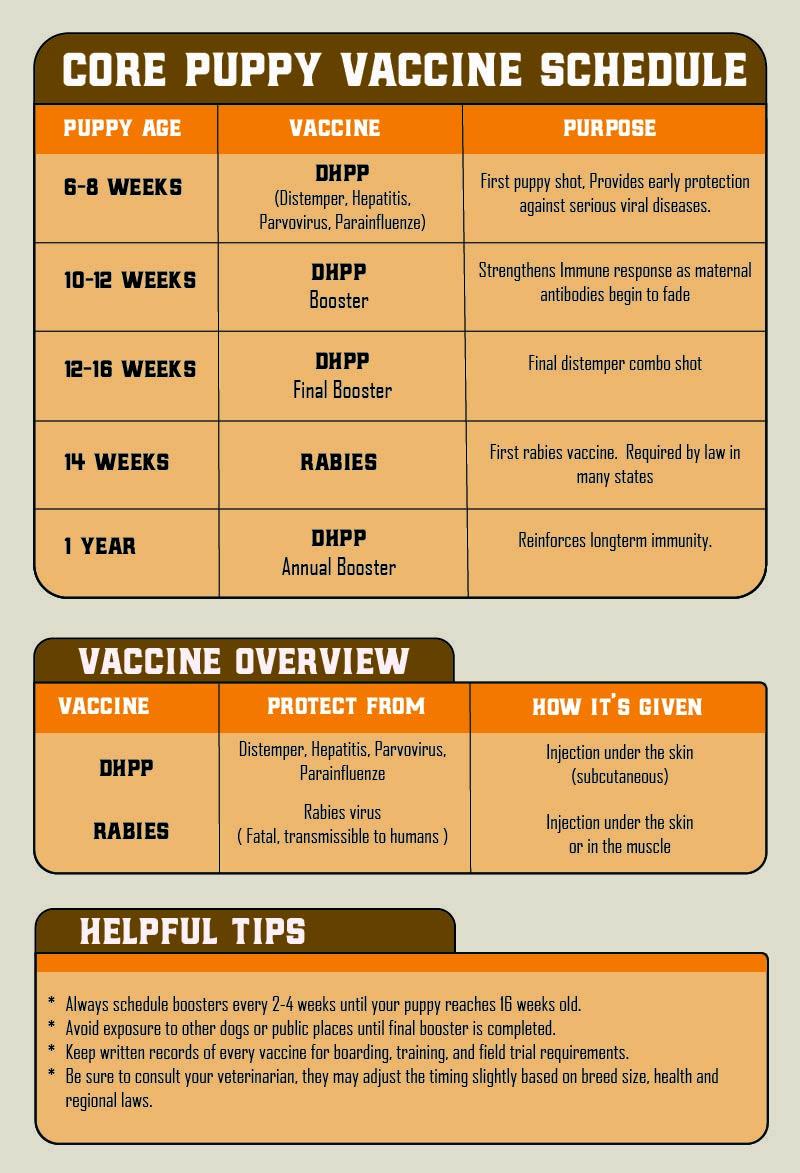
Optional (Non-Core) Vaccines for Puppies
In addition to the core vaccines that every puppy should receive, there are several optional, or “non-core,” vaccines that may be recommended based on your dog’s lifestyle, environment, and risk of exposure. These vaccines aren’t required for all dogs but can provide important protection if your puppy is likely to encounter certain diseases. Your veterinarian can help determine which of these shots are appropriate for your puppy’s routine.
One of the most common optional vaccines is Bordetella (bronchiseptica), often known as the kennel cough vaccine. This respiratory infection spreads easily anywhere dogs gather—boarding kennels, grooming shops, training classes, or dog parks. Some boarding and daycare facilities require proof of a Bordetella vaccination before allowing dogs to enter. The vaccine can be given by injection, nasal spray, or orally, and it helps reduce the severity and duration of the cough if your dog is exposed.
Another frequently recommended vaccine is Leptospirosis. This bacterial disease is carried by wildlife and spread through water, soil, or urine-contaminated areas. Dogs that spend time outdoors, around ponds, or in rural environments are especially at risk. Because Leptospirosis can also infect humans, vaccination helps protect both your pet and your family. It’s often given as part of the DHPP combination (making it DHLPP).
The Lyme disease vaccine is another non-core option worth considering if you live in or travel to tick-infested areas. Caused by the Borrelia burgdorferi bacteria, Lyme disease can lead to joint pain, fever, and long-term complications if left untreated. Regular tick prevention should still be the first line of defense, but vaccination offers an added layer of protection for dogs frequently exposed to wooded or grassy environments.
Finally, Canine Influenza (Dog Flu) vaccines may be recommended in areas where outbreaks occur or for dogs that travel or board often. Like human flu, it spreads through coughs, sneezes, and shared surfaces, and can cause fever, coughing, and lethargy. While most cases are mild, vaccination helps reduce transmission and severity.
Even though these vaccines are considered optional, they play an important role in keeping your puppy healthy and preventing disease from spreading within the community. Discussing your puppy’s lifestyle and activities with your veterinarian will help you make the best vaccination plan tailored to their needs.
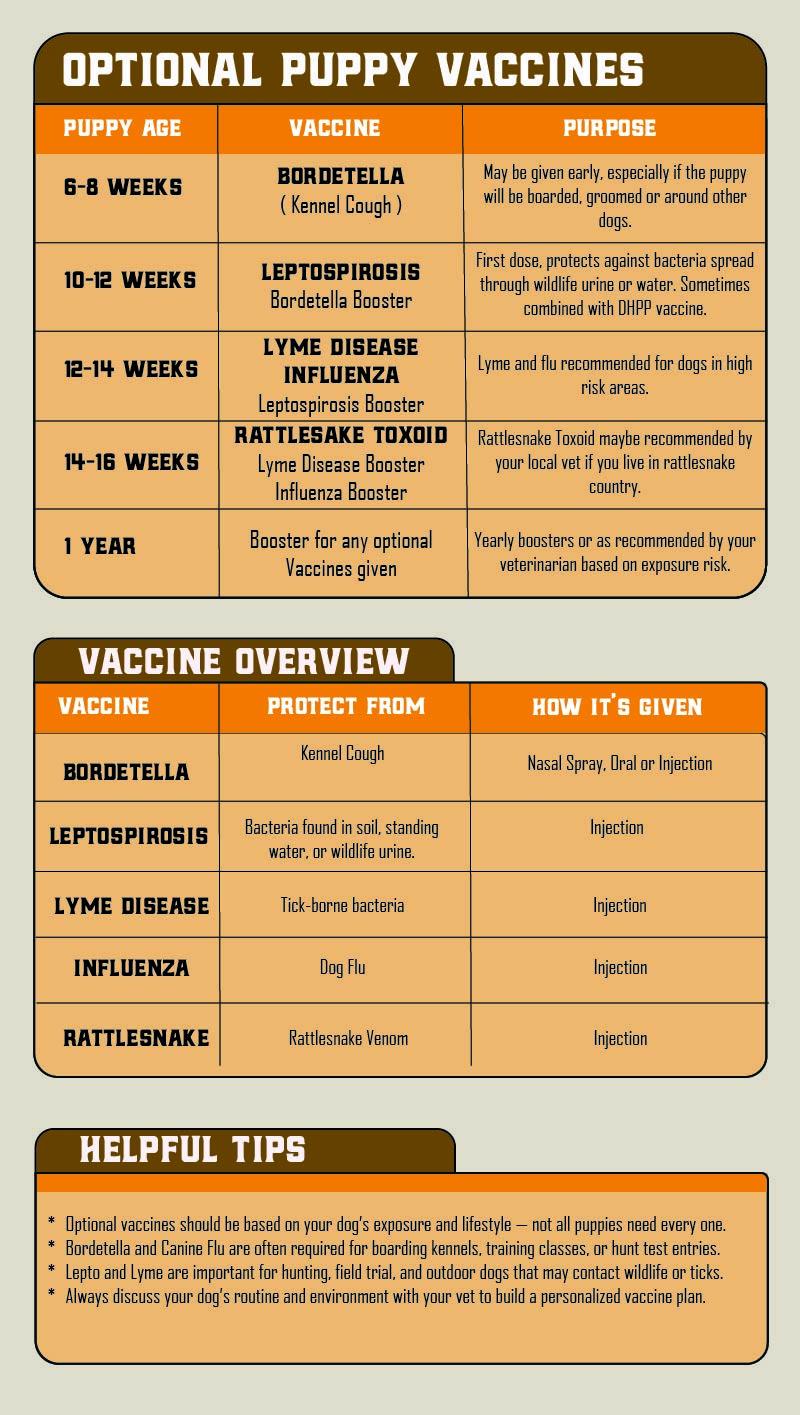
Frequently Asked Questions About Puppy Shots
Bringing home a new puppy comes with a lot of excitement—and just as many questions about keeping them healthy. Vaccinations are one of the most important parts of early puppy care, but it’s common for new owners to feel unsure about the timing, cost, and side effects of puppy shots. Here are answers to some of the most frequently asked questions to help you understand what to expect.
When should my puppy start getting shots?
Most puppies start their vaccinations around six to eight weeks of age. This is when the immunity they received from their mother begins to fade, and they need help developing their own protection. Vaccines are given in a series every two to four weeks until the puppy is about sixteen weeks old. After that, booster shots are given at one year, and then typically every three years for core vaccines like DHPP and rabies.
What happens if my puppy misses a vaccine or booster?
If your puppy misses a scheduled shot, don’t panic—but don’t wait too long, either.
Call your veterinarian and explain the situation. In most cases, your vet will restart the vaccine series or administer a booster to make sure your puppy builds full immunity. Skipping shots or delaying them too long can leave your puppy unprotected against serious diseases like parvo or distemper.
Can vaccines make my puppy sick?
It’s normal for puppies to feel a little tired or sore after vaccination, or to have a small lump at the injection site.
These mild reactions usually go away within a day or two. Serious side effects are rare, but if your puppy experiences vomiting, facial swelling, hives, or difficulty breathing, contact your vet right away. These may be signs of an allergic reaction that needs prompt attention.
Why do puppies need so many shots?
Puppies need multiple rounds of the same vaccines because their immune systems are still developing. Each booster helps build stronger and longer-lasting protection. Think of it like training their immune system—each dose reinforces what it learned from the last one.
How much do puppy shots cost?
The cost can vary depending on where you live and what vaccines your puppy receives. Most core vaccines are affordable, and many clinics or shelters offer low-cost vaccination programs. Considering the cost of treating diseases like parvo or distemper can run into the hundreds or thousands of dollars, vaccinations are one of the best health investments you can make for your puppy.
Keeping up with your puppy’s vaccination schedule gives them a strong start in life. Combine timely shots with regular vet visits, parasite prevention, and good nutrition, and you’ll be setting the foundation for a long, healthy partnership in the field and at home.

